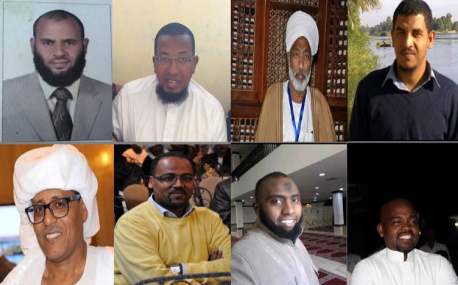Egypt’s senior rights official says she understands authorities’ detention of peaceful activists
The head of the Egyptian government’s National Council for Human Rights, Moushira Khattab, said that she understands and excuses the state’s expansion over the past years in imprisoning people not involved in violent crimes, given that Egypt is going through a difficult period.
Khattab expressed her hope that new presidential pardons would be issued, saying, “the state issues decisions to release prisoners five times a year.”
A member of the International Dialogue Group, which coordinates with judicial and security authorities in the country to release prisoners, touched on the expansion of pretrial detention decisions over the past years. The Committee for Justice had said in a report last week that the political repression practiced by the Egyptian political regime against the Muslim Brotherhood led to the transgression of international legal norms and frameworks for defining terrorism and the principles of legality, justice and criminal responsibility. The organisation added that the governmental repression extended to wide sectors of society and citizens who are not politicised or distant from the activities of Islamist groups.
In recent years, the judicial authorities have expanded issuing pretrial detention decisions against thousands of defendants without referring them to trial. During 2020, the Supreme State Security Prosecution opened investigations in at least 1,116 cases, of which the courts considered only 20 cases and the rest are still under investigation.
One hundred and seventy five parliamentarians, including members of the European Parliament, called for the establishment of a United Nations human rights monitoring mechanism in Egypt, and for firm measures to be taken to this end at the next session of the Human Rights Council in March.
The parliamentarians expressed deep concern about the international community’s continued failure to take any meaningful action to address the human rights crisis in Egypt, noting that this failure, along with a reluctance to speak out against rampant abuses, has only served to deepen the Egyptian authorities’ sense of impunity.





Recent Comments